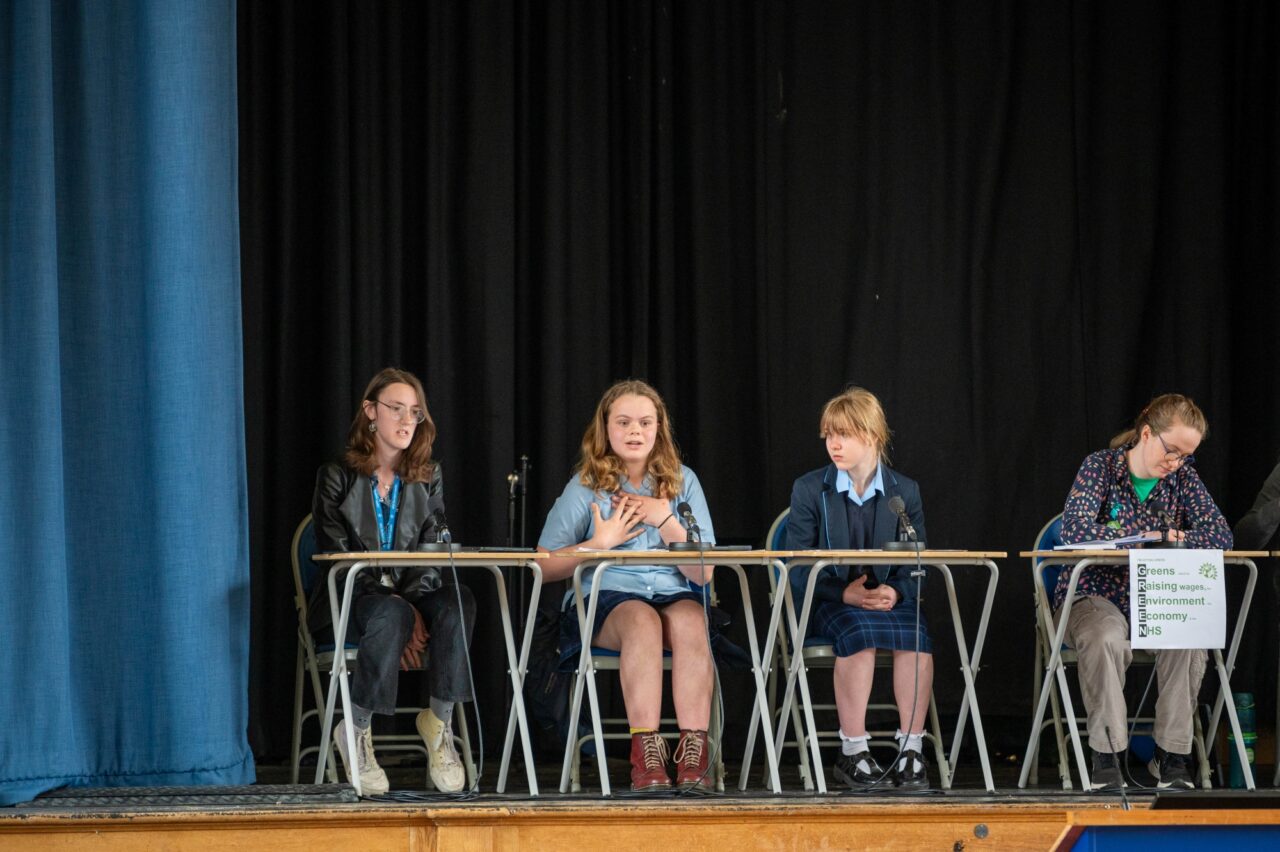The war on woke
woke
/wəʊk/adjective
INFORMAL•US
- alert to injustice in society, especially racism.
“we need to stay angry, and stay woke“
– Oxford English Dictionary
I remember taking a Sixth Form assembly back in 2017, our last before Christmas. It consisted of a suitably lighthearted review of the last twelve months in school in and of the year’s key cultural and political events around the world. This led to a reflection on how rapidly language changes, and to a focus on the Oxford English Dictionary’s new additions for 2017, among them a new adjective: ‘woke’.
Not one of the 200 plus students present had heard ‘woke (adj.)’ before – but its definition, being ‘alert to injustice in society, especially racism’ clearly resonated with them, and was enthusiastically received. Now, a time when ‘woke’ could be either unfamiliar or uncontroversial seems as remote as it is inconceivable: fast forward five years and not only has ‘woke’ moved emphatically from the margins to the mainstream of our discourse, but we see it regularly deployed as code for excessively sensitive, censorious or otherwise ‘suspect’ tendencies – on the left. Indeed, in its brief career in the OED, ‘woke’ has gone from affirming ‘an alertness to discrimination and injustice’ to disparaging and decrying the very people who reflect this quality.
Over the last couple of years, we have been introduced to an unlikely cast of ‘woke warriors’, from the National Trust (Guardian, 3rd January 2022) to the Headmaster of Eton College, with the Daily Express denouncing Eton as ‘aggressively woke’ (30th November 2020), having been hijacked by the ‘woke brigade’, and now in imminent danger of wholesale destruction at the hands of a ‘woke elite’. There is, of course, much that can be said about Eton in particular (in light of reports about the most ‘unwoke’ behaviour of some of its pupils towards its state school guests- Metro 20th November 2022), and about elitism in many UK institutions in general. But what journalism such as this reveals is that the word ‘elite’ has itself been hijacked in the same way as ‘woke’ has, pointing the finger not at the wealthiest, the most privileged, or the most influential in society but, in a stroke of breathtaking linguistic legerdemain, at those who would previously have been considered anti-elitist. This is not a situation that would be lost on at least one great Old Etonian – nor indeed on any of our Middle School pupils who have studied his ‘Nineteen Eighty-Four’.
A report published earlier this year by the Policy Institute at King’s College London revealed that more than half the population believes that the UK is riven by largely media-driven culture wars, and that negative perceptions of the word ‘woke’ have increased significantly over the last two years, especially among older people. It is, moreover, arguable that those who do see the term as positive now do so aided by a certain dogged resistance (a badge of honour if you will), as the first line of the defence against raucous apocalyptic headlines. Indeed, headlines such as those referring to Eton above do advance a special kind of negative agenda that seeks to shut down the very discussions about injustice and prejudice that the ‘woke’ would seek to initiate. Hijacked, inverted and turned in on itself, it amounts to what is a highly-effective one-word silencing technique. It is therefore no great surprise to learn that the term ‘post-truth’ entered the OED at the same time as ‘woke’ – and that ‘woke’ lost out to ‘post-truth’ in the competition for the accolade of ‘Word of the Year 2017’.
But where does this leave us a school, or any school for that matter? While we don’t hear Headington pupils denouncing each other’s ‘wokeness’, the wider context of the media noise and the confected fault lines of the current culture wars are concerning for their resistance to our fundamental messages of respect, something so integral to our core values of compassion, not to mention the courage and confidence needed to speak up against injustice. If George Floyd’s murder in Minneapolis in May 2020 taught us anything, it is that it is not enough to ‘tolerate’ each other; we need to respect, value and celebrate all the individuals who make up our community. It is obvious that the recent headlines turning fire and ire on schools who promote genuine diversity and equality want to turn the clock back, and undermine the ambition, hard work and commitment of the last two and half years, the commitment to make schools welcoming and inclusive environments for all, irrespective of belief, race, background, or gender identity. But more than that, they run counter to the spirit if not the letter of the statutory obligations schools have towards the Equality Act (2010), and towards promoting Fundamental British Values (2014), defined thus: Schools should promote the fundamental British values of democracy, the rule of law, individual liberty, and mutual respect and tolerance of those with different faiths and beliefs – and further – Schools should promote an understanding of the importance of identifying and combatting discrimination – or, in other words, fostering ‘an alertness to discrimination and injustice’, perhaps?
When I reflect on my own schooling, I appreciate just how powerful the culture of a school can be. I think, in particular, of my primary school in Nairobi. This was no ordinary ‘international school.’ It was the first non-segregated school in East Africa, a parent initiative, driven by a determination to break the culture and ideology of the colour bar through education. The school operated strict quotas, which meant that no child would belong to a class in which the majority of their peers looked like they did. To this day I am grateful for the early focus this gave me, and for the rich and happy community my brothers and I were able to be a part of. Fortunately, Headington pupils, despite the pervasive white noise of the culture wars that sadly frame so much of our public discourse, successfully keep their focus on substance and community: they think critically, they understand the power of words and they seek out opportunities to learn from each other. And learning means so much more than simply acquiring new knowledge; importantly, it means gaining new understanding and insights, and some of the most meaningful occasions life offers us for gaining new insights and understanding inevitably arise from our mistakes, misconceptions and errors. That is why it is crucial that, integral to the promotion of Equality, Diversity and Inclusion, no-one is vilified for ‘getting it wrong’ and that everyone is given the opportunity to learn, in a spirit of generosity and respect that can be so effective in binding communities.
It is this spirit of generosity that I find so powerful in the writing of Amartya Sen. While I am no economist, I find myself drawn again and again to the superb prose and deep humanity of this Nobel laureate. His 2021 memoir, ‘Home in the World’, I cannot recommend enough, while his 2006 ‘Identity and Violence’ is one of the most persuasive analyses I have read on the subject of identity. Sen, unsurprisingly, arriving in Cambridge from India as a student in the 1950s, experienced racism in this country first hand. His accounts of these experiences reinforce for those fortunate enough not to be victims of racism that racism manifests itself in so many basic social interactions, and is not necessarily the expression of consciously hostile forces: it can just as frequently be the manifestation of ignorance and unconscious bias. What is so striking, and yes, moving, about Sen’s accounts is the total absence of any attempt to demonise those who expose him to such attitudes. He tells the story of his first landlady in Cambridge, a Mrs Hanger. Now Mrs Hanger was very anxious about taking in non-white lodgers and, in her first conversation with him, actually asked Sen whether the colour of his skin would stain the enamel of her bathtub. But by the time Sen moved out of his digs a year later, Mrs Hanger ‘had transformed herself into a crusader for racial equality …. lecturing everyone in the neighbourhood that ‘all people are equal’’. There is no doubt that this transformation was enabled by the relationship she built with Sen, who from the outset recognised an essential kindness in her, rather than denouncing her ignorance and dismissing her as a human being.
Almost half a century later, Sen, no longer a student at Trinity but now its Master, recounts an eye-opening encounter with an immigration officer at Heathrow. ‘Identity and Violence’ opens with a description of how the officer ‘scrutinised’ Sen’s Indian passport, as well as the home address he gave on the immigration form: The Master’s Lodge, Trinity College, Cambridge. He then asked him if the Master of Trinity was ‘a close friend’ of his’. Sen explains that to him this was ‘a philosophical question of some intricacy’ one that gave him pause, ‘since it was not altogether clear to me whether I could claim to be a friend of myself.’ He adds that because ‘all this took some time to work out, the immigration officer wanted to know why exactly did I hesitate, and in particular whether there was some irregularity in my being in Britain.’ Of course this episode is a potent illustration of unconscious bias, which made the obvious and usual connection between a name and an address submitted on the paperwork so elusive to the UK Border Force, but Sen uses it as an occasion to reflect on the nature of identity as something inescapably plural and how the attempt to reduce everyone on this earth to a single category, what he calls a ‘solitarist approach’ is ‘a good way of misunderstanding nearly everyone in the world.’
Sen insists that humans are ‘diversely different’, and therefore can interact with each other in many different ways. This is a strength. But he cautions that a highly ‘partitioned world’ that reduces us to a single affiliation or identity ‘savagely challenges’ our shared humanity by ignoring ‘the plural and diverse categories that shape the world in which we live.’ We would do well to heed his words, because as Sen explains so eloquently, the alternative is violence.
And perhaps, by resisting the sort of lazy, ‘anti-woke’ rhetoric that abounds in our media, we can begin to shift our public discourse onto more stable, productive ground.



